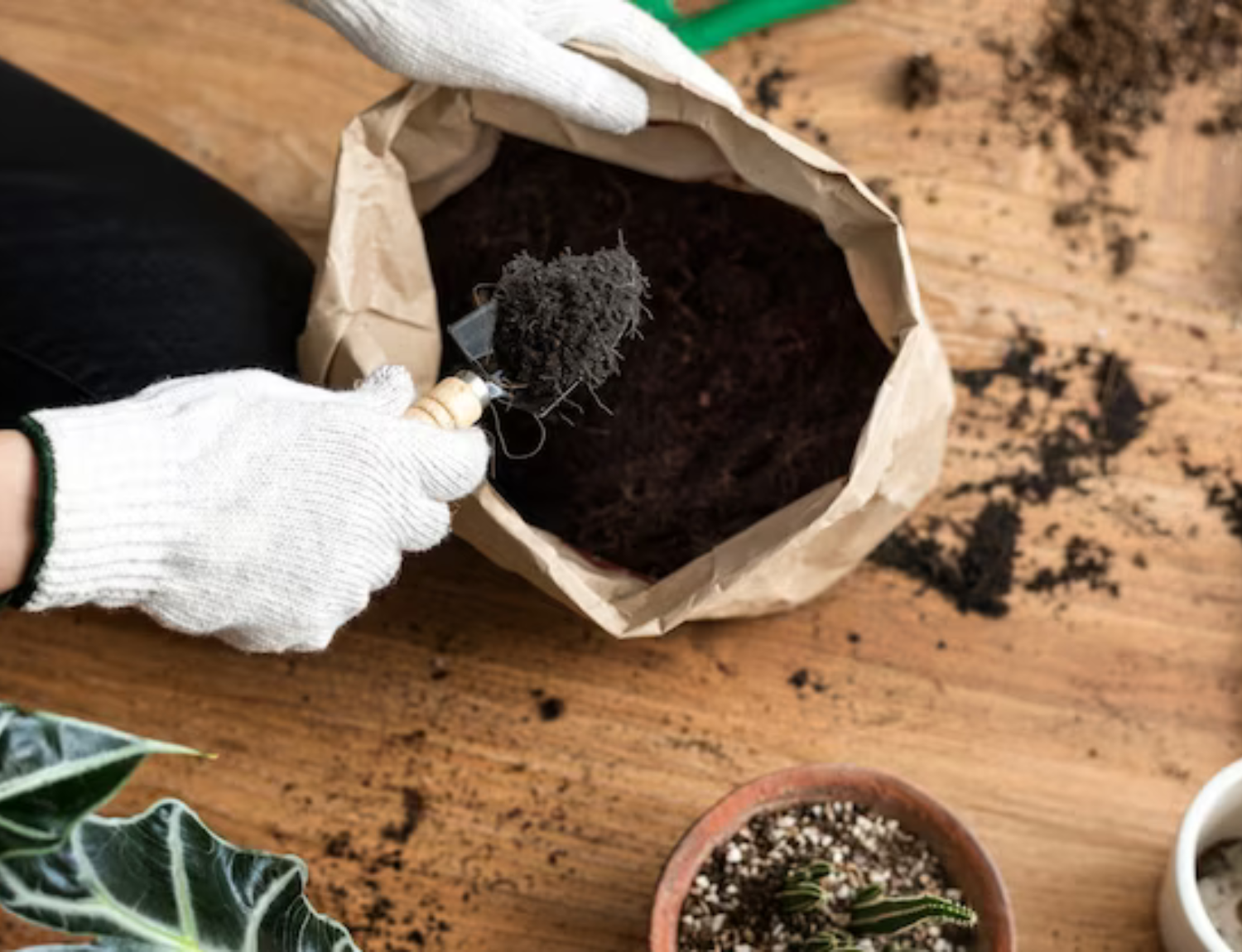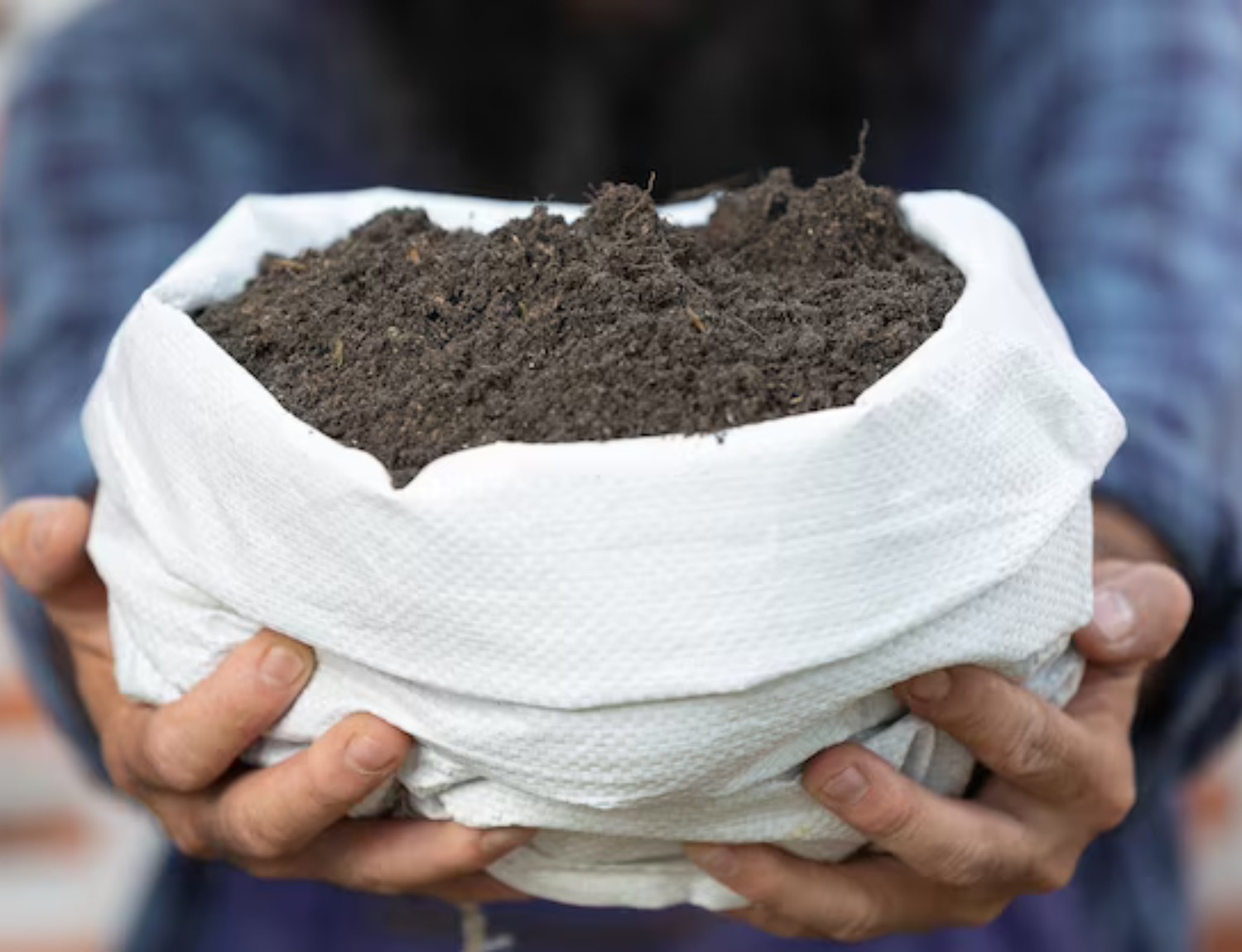A home garden is a coveted possession for any homeowner. For many people, the love for gardening often translates to growing fruits and vegetables in their backyard. In fact, it can be a great choice taking into consideration the magnitude of health hazards associated with crops produced commercially. The use of chemical fertilizers poses great risks and growing awareness about consuming organic food has been noticed recently.
However, it is not easy to sustain a home garden. In most cases, the lack of fertilizers in the soil can affect the production. The secret to a healthy garden does not lie in extremely expensive treatments. Rather, you can produce fertilizers at home easily.

Easy Ways to Make Home Garden Fertilizer
Organic home gardening is not as difficult as you may think. It can be easily produced at home without spending a lot of money. In fact, it is a fun-filled procedure where you can involve every member of your family. It is not only a great way to teach gardening DIY but a wonderful method to inculcate a knack for gardening.
Let’s take a look at some simple ways to make homemade fertilizers.
Compost
A gardening DIY activity that we can all indulge in is the creation of compost. Made with decayed food waste, it nourishes the soil and improves the nutrient content of the soil. Generally, at home, you can try two types of composting. Cold composting is the simplest method, whereby you can collect all types of organic waste available at home and drop it in a big trash pile. It may consist of vegetable and fruit peels, coffee ground, egg shells, fish or meat waste etc. These can be allowed to decompose and form compost.
Hot composting, on the other hand, needs an active involvement. It is a common choice for organic home gardening and can be produced within 2 to 3 months in hot and humid weather conditions. Nitrogen, air, water and carbon are required to make hot compost. Create a pile of waste, at least 3 feet deep, that has the perfect combination of these ingredients.
Include wet green items such as kitchen scraps, fresh plant and grass trims, ground coffee etc to add nitrogen to the compost. Fallen leaves, branches, newspapers and cardboard can be added to the compost as a source of nitrogen. Adequate water must be added to the waste pile and if it looks too wet or turns smelly in a course of a few days, aerate it often. It is also a good idea to mix one part of green material with three parts of brown material. It gives the best result.
Keep sprinkling water over the waste and monitor its temperature to make sure that it is warm. Use a garden fork during the growing season to pass oxygen through the waste pile. In some time, you will find out that composting is the easiest method for preparing a healthy treat for your home garden.
Fertilizers with Household Ingredients
Many gardeners do not realize that they can quickly make fertilizer at home with some easily available ingredients. Here’s a list that will surely help you in your gardening DIY endeavour.
Egg Shells
Everyone has egg shells at home. In most cases, we throw them away. But, did you know that egg shells contain about 1% nitrogen, ½ % phosphoric acid and other essential soil nutrients? All these elements can be used to fertilize the soil. Besides, egg shells are rich in calcium and it plays a vital role in cell manufacturing and growth of plants. So, next time, grind some egg shells and sprinkle it in your home garden to add the much needed organic goodness to the soil.
Cooking Water
Water used for boiling different types of food such as potato, eggs, pasta, rice or any other vegetables is rich in nutrients. It can also be used as a fertilizer for the soil in your backyard. Instead of throwing away the used water, let it cool down and you can easily use it as a homemade fertilizer.
Aquarium Water
If you have an aquarium at home, do not waste the water in it. It is filled with nutrients such as phosphorus, nitrogen, ammonia and potassium. It also contains microorganisms found in fish waste. This can be used to water indoor potted plants. But, make sure not to fill your aquarium with salt-water. It can be harmful to plants.
Ground Coffee
Coffee has about 2% nitrogen and contains phosphoric acid and potash in varying amounts. Therefore, it can be used for plants such as evergreens, avocados, blueberries, roses and some fruit trees that require acidic soil. Let the coffee grounds dry before scattering them around your plants.
Epsom Salt
Epsom salt and water can be mixed to create the simplest homemade fertilizer. An excellent organic home gardening ingredient, 1 tablespoon of Epsom salt can be diluted in 1 gallon of water and sprinkled on the foliage. Apply it once a month and it will give your plants a dose of sulphur and magnesium.
Wood Ash
A source of calcium carbonate and potassium, wood ash can be sprinkled over the garden or can be used for preparing compost. It increases the alkalinity of soil and must not be used in areas where you’ve planted trees that need acidic soil. It is preferable to use hardwood ash for this purpose and avoid using ash with lighter fluid or charcoal in it. This can be harmful to your plants.
Green Tea
Another simple yet effective tonic for your plants can be prepared instantly with green tea. Use 1 teabag of green tea in 2 gallons of water to prepare a solution. This can be sprinkled over plants once every month.
Gelatin
A wonderful source of nitrogen, it can be used as a fertilizer for houseplants. In 1 cup of hot water, add 1 packet of gelatin and mix it with 3 cups of cold water. Use this solution to directly pour over the soil around plants. This can be used once in 4 weeks.
Hair
Start collecting hair if you need an instant fertilizer for your home garden. It is a great source of nitrogen and you can even use animal hair from dogs, cats or horses for this purpose. You can even ask the local barber shop for a ready supply of human hair.
Matches
Did you know that the easy strike matches that you use are excellent sources of magnesium? You can easily use these as fertilizer. Soak the matches in water and put it in the soil along with the plant. It will release magnesium and improve the nutritive content of the soil.
Horse Feed
Molasses found in horse feed improve the quality of your soil. It can either be sprinkled on top of the soil or can be dissolved in water along with an organic fertilizer. The mixture can be used as a soil drench.
Milk Powder
The calcium needs of plants can be easily met with milk powder. Not only is it great for human consumption, but it is also a portion of great plant food. Since it is available in powdered form, plants can easily absorb the calcium from milk powder when it is mixed with the soil before planting.

Simple Yet Effective Home Garden Fertilizer Recipes
Check out these easy fertilizer recipes that you must give a try.
Liquid Fertilizer from Vegetable Scraps
To make this fertilizer you will need loads of cooked or raw vegetable scrap. You can always store them in your freezer. When there is enough scrap to fill an entire blender, thaw the frozen material and make a puree with cooking water. You can use leftover water from boiling pasta, chicken or vegetables.
With every blender full of puree, you need to add one cup of ammonia and 1/2 teaspoon of Epsom Salt. Mix everything in a big bucket. You can prepare separate batches and let it rest overnight. To use the mixture as a fertilizer, you need to mix one quart of puree with one gallon of warm water. Let it dissolve completely and apply it to the base of your plants.
Quick Fix Fertilizer
This can be made with readily available ingredients. Take an empty 1 gallon milk jug. Add 1 teaspoon of ammonia as a strong source of nitrogen and 1 teaspoon of baking powder to it. Mix 3 teaspoons of instant iced tea, 3 teaspoons of blackstrap molasses and 3 tablespoons of 3% hydrogen peroxide.
To this mixture, add around 1/4 cup of crushed bone. You can also use fish bones here. Along with this, add 1 crushed egg shell or the peel of a dry banana. Now fill your jug with water and let it remain in the sun for an hour. You can use this mixture to enrich the fertilizer content of your soil.
There are plenty of benefits to using your own fertilizer. It is cost-effective, easy to make and is 100% organic. Therefore, it is an environment-friendly option and helps to add adequate nutrients to the soil. Next time when you are gardening, think about trying any of these fertilizers.